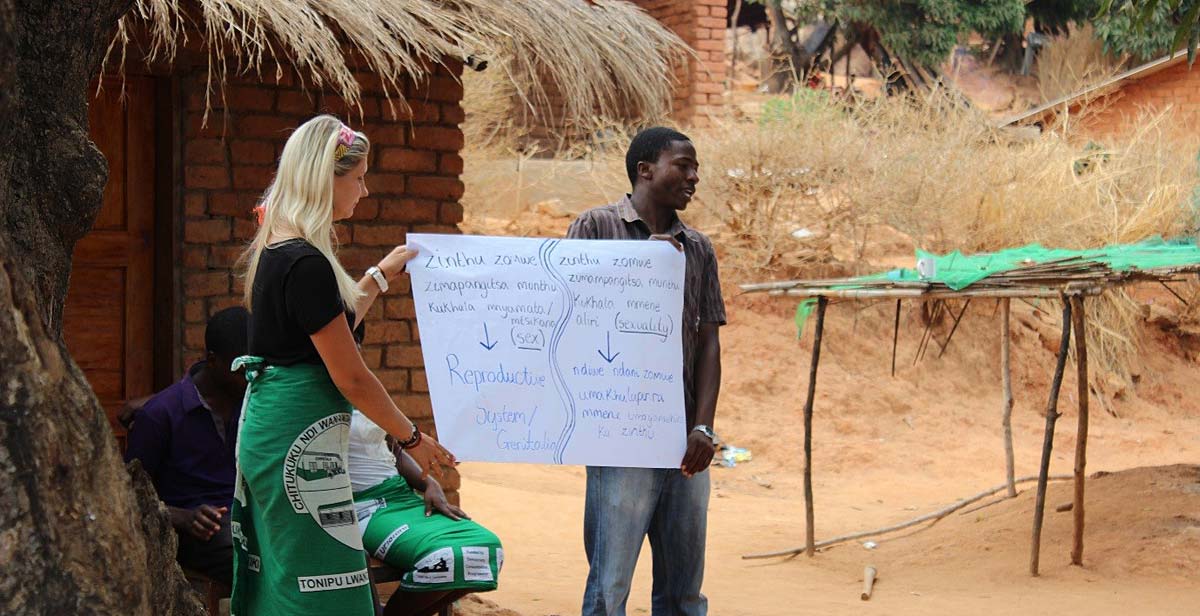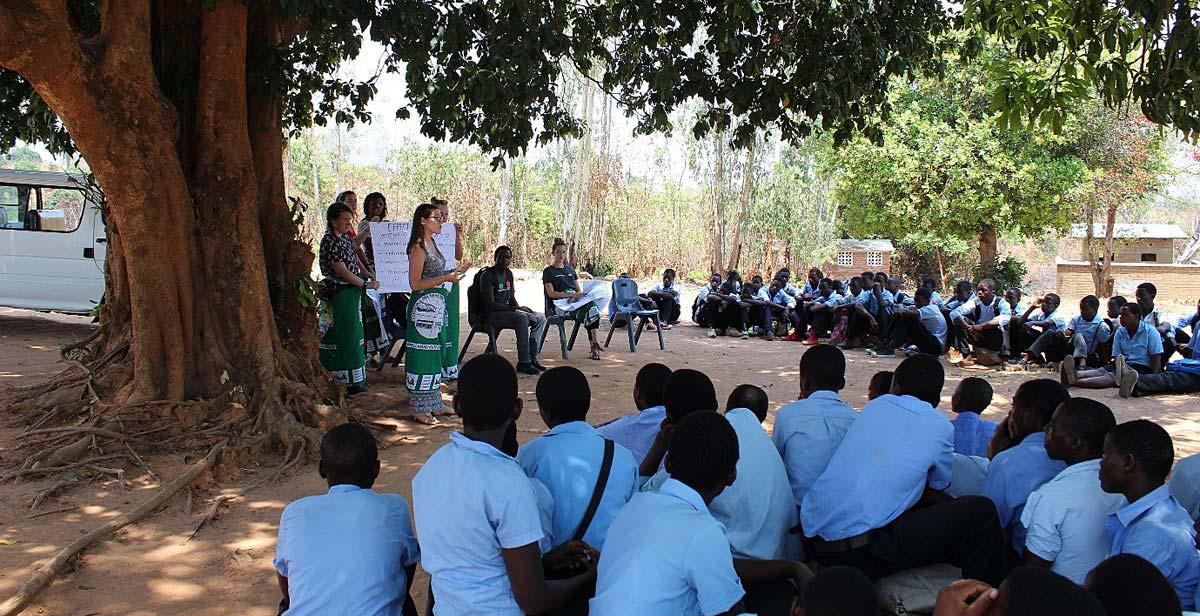Consent has been taught to me, both formally and informally, for as long as I can remember, to the extent that it feels like common sense.
"No means no"
This is something I have known since a young age. Consent should be respected at all times and everyone has the right to not consent to sexual activity, and that too, should be respected. I have discovered that within popular belief in Malawi, this is not the case. Consent is an ongoing global issue, which is still being tackled and addressed through different measures. According to the UN, it is estimated that 35 per cent of women worldwide have experienced either physical and/or sexual intimate partner violence or sexual violence by a non-partner at some point in their lives.
On Thursday, Team Umoza facilitated a Sex and Sexuality session in the rural community of Kaulambwe. I spoke to the parents about the importance of consent, "A wife does not owe her husband sex, and likewise a husband does not owe his wife sex. Sexual activity should be between consenting individuals".
This community session was aiming to raise awareness on sex and sexuality issues and the ways which we can combat them. Within the discussion section at the end of our presentation, a member of our audience, the Head Teacher of the community that we were visiting, stood up and said, "It is said in the bible: a husband has no authority over his body, but his wife's, and a wife has no authority over her body, but her husband's". Murmurs in the crowd showed a clear approval of this. I struggle to understand how one quote in the bible overrides respect for people, and how this has been interpreted to justify rape.
Despite our clarifications that non-consensual sexual activity is rape, which is against the constitution in Malawi, I did not feel that any understanding or progress had been made. I left the Kaulambwe community feeling disheartened and despairing about the sessions that we were running. It seemed that there was not open mindedness where it is needed most.

What was more concerning still, was that at our session in Chiole on the previous day, we were faced with a similar response from a crowd of women claiming, "it is in our culture that we cannot say no to our husbands". To know that the problem is so inherently built into the culture here made me feel like the sessions were useless. Consent has been an incredibly emotionally straining topic for us throughout our placement so far, as it repeatedly crops up in the issues that we address, for example child marriage, rape, and teen pregnancy.
After taking some time to reflect, I spoke to some of our national volunteers to try and understand why these attitudes regarding consent are so common, and how we can alter our approach to best invoke a change in perception regarding these issues.
Kellina explained to me that most of the adults in the rural community of Kaulambwe were uneducated. She said that in Malawi education is changing attitudes for the younger generation and it is a process that takes time. She and her peers know that everyone has the right to not give their consent to sex and that this should and is respected, however, because the older generation have not had access to formal education, many do not understand this.
Perhaps then we have to hope that attitude change comes with younger generations becoming more accepting on social issues. Once again, I am reminded that change does not happen in a day, and that development is a long term process. Though this feels incredibly frustrating, it is evident that by empowering the youths, and educating them on issues that Malawi currently faces, together we can establish solutions to these, and throughout the years that follow I hope that such attitudes will spread so that socio-economic development follows.
Malawi is a beautiful country, with beautiful people, the vast majority of which are keen to see change and progress towards a fairer, more open-minded future, and I am excited to be a small part of this whilst on my ICS placement with YONECO.
Written by ICS volunteer Sarah Clarbour. Photos by Sarah Clarbour and Kate Hawkins.



